HOME | ABOUT US | MEDIA KIT | CONTACT US | INQUIRE
HOME | ABOUT US | MEDIA KIT | CONTACT US | INQUIRE
Missouri’s Greatest Natural Resources Are The People Living Here

The stories of 50 Missourians You Should Know are the stuff of inspiration, no matter what their vocation.
Some find fulfillment at the molecular level, advancing the cause of science in the University of Missouri system. Some find it on the lake, some in corporate offices, some in hospitals, or in the field with elk, deer, bears and even mountain lions.
The personal journeys of this year’s 50 Missourians You Should Know again show us that the state is brimming with smart, talented, ambitious people who draw on their natural talent and their own inspirational figures to do the work that makes Missouri a successful center of business, an unparalleled place to live and raise a family, a nexus of
innovation and a repository of both high art and refined culture.
Some have overcome personal challenges with the hand dealt them early in life, or after career setbacks, and they have prospered in spite of the burden. Some have taken the bounty they inherited at birth, and found ways to turn it into additional value—not only for themselves and their families, but for the betterment of the 6 million other souls who call the Show-Me State their home.
They hail from private companies and publicly owned companies, from non-profit groups and universities, and from organizations they’ve founded after their careers, because they weren’t done giving back to a land that they believe has given them so much.
From every corner of the state, they show us that the best of what Missouri has to offer is not solely confined to the C-suites of Fortune 500 firms in the major metropolitan areas, but also can be found in tiny burgs, in college towns, in the thriving suburbs and in the vast rural stretches that encompass river lowlands, national forests, and productive farmlands.
If there is one thing that the 50 Missourians You Should Know teach us each year, it’s that there is no one stereotypical Missourian. And for that, we should all be grateful.
Jack Prim
Jack Henry & Associates, Monett
Young Jack Prim “couldn’t wait to get out” of the small-town settings in his native Hendersonville, N.C.. These days, he’s CEO of Jack Henry & Associates, a public company based in Monett, Mo.—pop.: 8,600. It’s more like Mayberry than Metropolis, but it fits. “The people are great, the cost of living is absurdly low … and the pace of life generally is more enjoyable,” he says. It only took a few months to Monetize him; after Jack Henry acquired the IT firm he worked for, he made a trip back home in 2006 and was complaining about traffic within minutes.
Prim, who has an MBA from Queens University, cites Midwestern values as an advantage for the financial-services software firm, values that “spill over into how we think about running the company.” With 1,200 employees in Monett and 700-plus in Springfield, less than half the staff is in Missouri. But “frankly,” he says, “it would be challenging to find and attract all the technical talent we need” in Monett. So employees can leverage technology to perform at high levels and still embrace the values of founders Jack Henry and Jerry Hall.
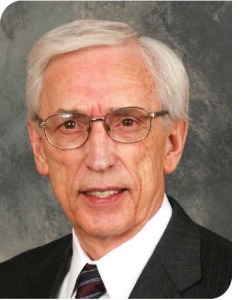 James Leon Combs
James Leon Combs
Beaver Creek Ranch, Bradleyville
Back in the early ’50s, James Leon Combs and his teammates at Bradleyville High School didn’t even have a gym, and even if they did, it might not have mattered—they won only two basketball games in four years.
After a stint in the Marines and a journalism degree from MU, he went on to huge success with yearbook publisher Jostens, including a 15-year run as the nation’s No. 1 sales exec in that field. That positioned him to buy a small vocational school called Sanford Brown College, turn it around, earn accreditation, and launch other schools for truck driving and jobs in the health-care field.
He sold it all, retired and moved back to Bradleyville, where he amassed 3,000 acres of farmland to build his dream home and the Beaver Creek Elk & Cattle Ranch. Today, he sits on the boards of more than half a dozen regional charities.
He’s also an author, with three books, including the “Hoosiers” like “The Hicks From the Sticks,” which chronicled a state-record 64-game winning streak and three state titles for his alma mater in the 1960s. “Hicks,” in fact, spent 18 weeks at No. 1 on Amazon’s list of top-selling books in Missouri.
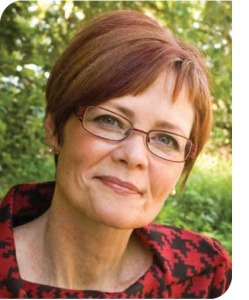 Katherine Allen
Katherine Allen
Allen Global Companies, Springfield
Before her father’s death when she was only 3, Katherine Allen recalls, she would sit at a small desk by his side, pretending to make phone calls to foreign lands. Just like Dad. “I was born an internationalist,” she says, and that was reinforced with trips to Europe, Canada, Russia and Latin America, then Switzerland as an exchange student at 17.
After a brief foray in consulting, she came back to the family business run by her mother, who inspired in her daughter both a work ethic and an understand-ing of the challenges of a woman in business—over-seas and at home.
“It is very challenging, and doesn’t really matter who you are,” Allen says, “the fact that you’re a woman, they will take the same thing you say from a man, but not from you.”
At first blush, a degree in humanities may not seem to square with the training needed to manage a global oil-services company operating in 60 nations, but it has served Allen well in understanding what’s needed to align her business operations with the structures of other cultures and, as she says, “meet people where they are.”
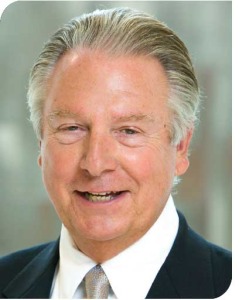 Cottrell Fox
Cottrell Fox
J.W. Terrill, Town and Country
His “Leave It to Beaver” childhood in Webster Groves, Mo., concluded up with one important difference: Wally and The Beav never made it to Vietnam. Cottrell Fox was one of three brothers in the Marines, and his experience on a Special Forces ambush unit in the 1960s, he says with no small amount of understatement, “completely changed my world view.”
He returned to Missouri with three Purple Hearts, and after earning a journalism degree at MU, ended up by chance in the insurance brokerage field. Today, he’s an executive vice president with J.W. Terrill in St. Louis.
He and his wife, Kay, didn’t have kids, but they did have dogs, particularly Springer Spaniels, and their emotional attachments to them—plus Fox’s success at work—came together in 2013 in the form of a $5 million estate gift to MU’s veterinary program, which had treated their pets for cancer.
“They’re our kids, if you will,” Fox says of those animals, and he hopes that gift, set up in honor of two veterinarians from the MU school who have treated most of their pets, leads to treatments that will benefit both canine and human cancer patients.
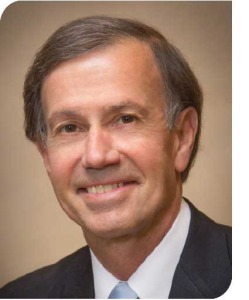 Lance Beshore
Lance Beshore
Leggett & Platt, Carthage
Lance Beshore, a native New York-suburbanite, had a pair of graduate degrees from the University of Colorado and a teaching gig in Boulder back in 1980. But he wasn’t looking for something he could fit—he wanted something that would fit him. He found it in Carthage, Mo. “I was looking for an opportunity like a greenfield,” says Beshore.
He was hired to start a government-relations office at Leggett & Platt, which makes components for home, auto, aviation and other sectors. “It was about a $60 million company at the time, and I thought that was huge,” says Beshore. “But (then-CEO) Harry Cornell had lots of interesting visions about where he wanted to go; we’re in about 25 countries, so his vision was prescient.”
In 2013, sales hit $3.75 billion and stockholders have enjoyed increased dividends for a remarkable 43 consecutive years. The company is an economic anchor in Carthage, with roughly 1,800 employees there, and Beshore, a member of the Republican National Committee, is rightly proud to have been part of that rise. “It’s not a Walmart story,” he says, “but it is a pretty darn good story.”
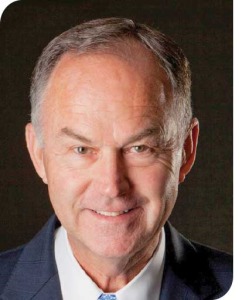 Bob Hammerschmidt
Bob Hammerschmidt
Commerce Bank, Springfield
Bob Hammerschmidt became a bank CEO at 28, so it was clear he was going places. When the owner thwarted Hammerschmidt’s efforts to buy that bank in his native Arkansas, he was indeed going places. “I searched for a strong horse to hook up my career wagon,” Hammerschmidt says. Van Buren’s loss was central Missouri’s gain; he’s the regional president for Commerce Bank, based in Springfield. He’s worked there for 17 years, following 10 years in Columbia.
His small-town banking experience has been a perfect fit, even in the state’s third-largest city, which has a highly diverse economy disinclined to participate in downturns. “Springfield maintains a unique collaborative attitude and entrepreneurial spirit not present in other places,” Hammerschmidt says.
Top-tier health care is a prime factor for site selectors, so Hammerschmidt has dedicated his board service to the likes of Mercy Health System and Jordan Valley Community Health Center, because of their “strong emphasis on serving those in need. Those of us who can, must help those in need to strengthen the fabric of our entire community.”
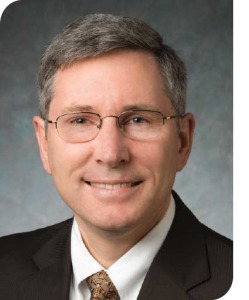 Tom Sack
Tom Sack
MRIGlobal, Kansas City
Tom Sack grew up in southeast Kansas City, which isn’t exactly rural, but the farm-life influence was never far away. “My parents, both from large families from rural Kansas, instilled our values of faith, family, work ethic, and respect for others,” says the president and CEO of MRIGlobal, a pillar of the region’s research infrastructure. His path was a natural progression for a lad who had what he calls a chemistry ‘lab” in his parents’ basement. “Research comes naturally to me: I am naturally curious … about how things work; how they are built; how they assemble.”
Overseeing labs around the world is an ideal fit for Sack, who started there as a college intern. And the organization’s future is ripe with the same possibilities that Kansas City itself sees for growing a research base in human and animal health.
The region’s synergy among education, business and entrepreneurs, he said, have created “tremendous opportunity for collaboration among our research assets to advance new initiatives in neurological health, antimicrobial resistance, diagnostics and other initiatives.”
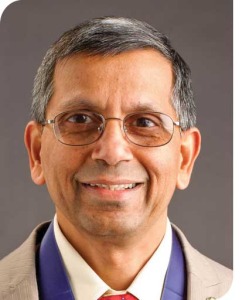 Kattesh Katti
Kattesh Katti
University of Missouri, Columbia
Thinking back to pre-college days in India, Kattesh Katti recalls the organic chemistry lectures of a Purdue-educated professor. “His lecture was like watching a great movie,” Katti recalls. “He really impressed me about the nuances of science, nuances of chemistry, what chemistry can do to life.” That gave direction to a career that would see Katti make it big by thinking small—nanotechnology small. A highly-decorated researcher in green technology at the University of Missouri, Katti lives and breathes the desire to learn, instilled by his grandfather—who had two doctoral degrees—back in Dharwad, India, but he also credits his wife and children for invaluable support.
After earning his doc-torate from South Asia’s most prestigious research organization, he looked to opportunities in the U.S. and chose MU’s medical school because of its culture of excellence in clinical translation research, he says. “The interdisciplinary focus of my research,” Katti says, “has allowed me to transition very smoothly on the application of nanotechnology to solving vexing medical problems.”
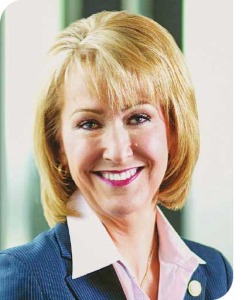 Kathleen Mazzarella
Kathleen Mazzarella
Graybar Electric, St. Louis
In the chest-thumping competition as home to big corporations—according to the Fortune 500, anyway—St. Louis has a 9-0 lead over Kansas City, and only Springfield (home to O’Reilly Auto Parts) prevents a River City sweep in Missouri.
But even within that thin air, there is a rarer plane: Only one of those 10 Missouri companies has a woman in the role of chief executive. That would be Graybar Electric, where Kathleen Mazzarella holds that title, as well as those of president and chairman. Given Missouri’s population base, this makes her not one in a million, but one in 6 million.
Perhaps even more impressive, she’s an example of someone who worked her way up for decades before reaching the summit—she was 19 years old when she started as a customer service representative at the electrical-supplies distributor.
Her rise through the ranks reflect a strong commitment to continuing education, as well: after earning an associates degree in telecommunications, she picked up a bachelor’s in applied behavioral sciences, then an MBA from Webster University.
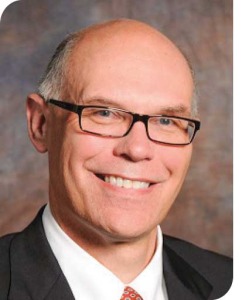 Warner Baxter
Warner Baxter
AMEREN Corp., St. Louis
Warner Baxter knows St. Louis, he knows energy, and he knows value. Put those together and you have a nearly unmatched asset for business attraction to the state, says the president, CEO and chairman of Missouri’s largest energy company.
“Our rates are among the lowest in the country—24 percent below the national average, and 17 percent below the Midwest average, and our reliability is in the top 25 percent,” he says. “Every day, we talk about the importance of price and reliability, because they give our state a distinct competitive advantage when trying to recruit businesses from around the world.”
For this St. Louis native, who earned his accounting degree from Missouri-St. Louis, Midwestern values helped bring him home after a stint with Pricewaterhouse in New York. Those same values, he says—honesty, integrity, respect for others and humility—also inform his guidance of the company.
They also underpin his work with non-profit causes, both professionally, with bus-iness-development groups, and personally with cancer-related groups. “We’ve all been touched in some form” by cancer, he says.
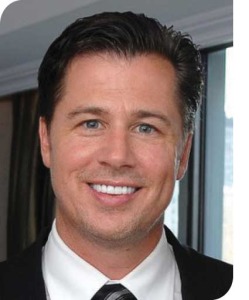 Doug Pitt
Doug Pitt
ServiceWorld, Springfield
He has climbed Mount Kilimanjaro—and gone down it on a mountain bike. He’s launched and sold tech companies, founded and worked with non-profits fighting poverty here and in Africa, he’s an avid photographer and he’s been a YouTube rock star for Virgin Mobile. Doug Pitt has done all of this—and more—from a home base in Springfield.
Why Springfield? Beca-use he and his wife wanted their kids to have the kind of upbringing they did. “The greatest compliment you can give your city,” he says, “is in choosing to raise your family there. I am a Missouri guy.”
His father inspired an entrepreneurial stripe strong enough to lead even a tech-challenged Missouri State grad into the IT sector, where he’s formed, sold and still owns parts of various companies. He started ServiceWorld in 1991, and “truth is,” he confesses, “I could barely turn on a PC, but I knew tech was the future. I hired some smart people and jumped in with everything I had.”
He also has founded Care to Learn to fight poverty in Missouri, and worked with various charities in Africa, and in Tanzania in particular.
Fred McQueary
Mercy Health, Springfield
His family’s Missouri roots run to the time of the Louisiana Purchase, but Fred McQueary, an orthopedic surgeon by training and now an executive with Mercy Health, has a gaze firmly fixed on the future of health care in his home state. Because Missouri has several integrated health systems that focus on care coordination, eliminating gaps in care and eliminating duplication, he says, it is ahead of the national curve pursuing that model to cut health-care costs.
His father was CEO of McQueary Brothers Wholesale Drug Co., which was sold to pharmaceutical conglomerate McKesson in 2005, so health care has always been in his back-ground, even before the School of Medicine at MU.
He joined Mercy in 1986 and served five years as chief of orthopedics, five as chief of surgery, and seven as president of St. John’s Clinic/Mercy Clinic North Central Communities, splitting his time between the home
office in St. Louis and Springfield, or on the road.
On his watch, St. John’s was named the No. 1 Integrated Health System in the country three times.
Doreen Dodson
Polsinelli, St. Louis
Doreen Dodson’s path to a law career was put on hold by three factors familiar to any working mother today—her children—and one that generally isn’t—a society disinclined to encourage women in
law. “I wanted to be a lawyer, like my father, from the time I was quite young, but girls were not encouraged to go to law school back then,” says Dodson. So, 14 years after she first set foot on the campus of Duke University, then earned a master’s in education at North Carolina, Dodson graduated from Saint Louis University’s School of Law.
Most of her career was with the Stoler Partnership, a law firm that disbanded in 2013, and Dodson took her legal acumen, including skills in employment and immigration law, to what’s now the Polsinelli law firm.
Despite push back from President Obama’s stated goal of dealing with immigration issues through executive order, “I believe it will be a very good thing for Missouri and its effort to keep skilled, highly trained professionals, including entrepreneurs and venture start- ups,” Dodson says.
Rick Means
Shelter Insurance, Columbia
His father owned an auto body shop in Fulton, and young Rick Means worked there by day, as school allowed, and hauled hay at night. His mother worked in the county office of the state’s family-services offices. “If there’s one thing I can say about my upbringing,” Means says, “it’s that my parents taught me to hang in there and work hard, and it eventually would pay off.”
All too true: After earning his business degree from MU in 1977, Means went to work for MFA Insurance—now Shelter Insurance—worked hard, rose through the ranks. In 2012, he was named president of the Columbia-based insurer, one of the largest employers in town, with 1,100 working there, and 2013 premium volume of nearly $1.5 billion.
Columbia, he says, is an ideal location, even for a business with 19 offices operating across 18 states in the central and southern U.S. “It’s easy for employees to travel here, central to Kansas City and St. Louis, and we can recruit employees right out of Mizzou, Columbia College and Stephens College,” all right there in Columbia, Means says.
Clif Smart
Missouri State Univ., Springfield
It happened, as these things often do, by chance: An acquaintance with ties to Missouri State urged Clif Smart explore the vacant role of general counsel at the Springfield university. After 21 successful but demanding years as a litigator—first in the Army with the JAG Corps, then with a Little Rock law firm, Smart relished the thought of leaving behind the 60-hour weeks involved.
He got the job, then became interim president in 2011, and president a year later—often working, he notes with a laugh, 60 hours or more a week. “But it’s a different 60 hours,” says the Fayetteville, Ark., native. Social functions, speeches, administrative duties—even dealing with legislators—all are a lot less grueling than 12-hour depositions or drafting briefs at midnight.
While constantly amazed at Missourians’ deep commitment to the university, he notes the enormity of the challenge in a state where public funding ranks among the lowest levels in the nation. “Ultimately, that’s going to impede our growth,” he says. “It’s critically important that we fund higher education at a responsible level.”
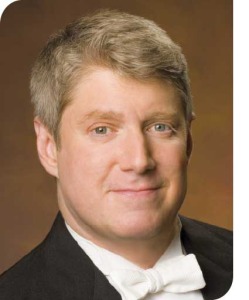 Michael Stern
Michael Stern
Kansas City Symphony, Kansas City
A decade into his longest career stop—as music director for the Kansas City Symphony—Michael Stern has an enviable position as a conductor: Elevating the level of performance and programming for the symphony, diversifying the audience it reaches and, since 2011, wielding a baton in one of the finest music venues on the planet, the Kauffman Center for the Performing Arts and its spectacular Helzberg Hall.
Stern does double duty as founding artistic director and principal conductor of the IRIS Orchestra in Germantown, Tenn., and he regularly makes guest-conductor appearances before some of the world’s most accomplished symphonic ensembles—the London Symphony and London Philharmonic, the Royal Stockholm Philharmonic, and orchestras and symphonies in Paris, Helsinki, Budapest, Moscow, Taiwan, Tokyo—the list goes on and on, and Stern’s work has drawn raves from critics in the process.
A 1981 Harvard graduate, he studied American history there, not music. The music degree came in 1986 from The Curtis Institute of Music in Philadelphia.
Jim Castellano
RubinBrown, St. Louis
The enduring link between Jim Castellano’s youth in St. Louis and his college days in Kansas City was Jesuit education, both at St. Louis University High and Rockhurst University, where he earned his degree in accounting.
Experiencing both cities has given Castellano, chairman of the board for the accounting/consulting firm RubinBrown, a perspective about the state’s two major metro areas that eludes most Missourians. “While Kansas City and St. Louis each have their unique public policy issues, there is much we have in common, and we have worked well together to advance those issues,” he believes. And yet more, he said, could be done on such shared concerns as transportation infrastructure, public education and economic development.
His career success earned him recognition as 125 People of Impact in Accounting by the American Institute for Certified Public Accounting. And while his career has been tethered to the St. Louis headquarters, his ties to Kansas City prompted the firm’s expansion here, and he is still part of Rockhurst through his work on its board.
Barry Aycock
AgXplore, Parma
“I’m just a boring guy in the Bootheel, living the American Dream,” Barry Aycock says during a break in a typically American practice—taking the family to Disney World. But there’s not much about this agricultural entrepreneur’s life that could be considered boring: He’s running six different ag-related businesses or concerns grounded in the Bootheel’s farm sector.
Aycock, who has a Ph.D. from Southern Illinois, got his interest in farming from grandparents who cleared their own land in the Bootheel. But it’s a vastly different practice today, driven by improvements in land management and by technology, such as the advance of cotton varieties that are resistant to insects. “Ag,” Aycock says, “is changing so fast.”
At 26, he was Cotton Consultant magazine’s consultant of the year—the youngest ever, and the only one from Missouri. That led to a consulting gig in Bolivia, which inspired the 1999 founding of AgXplore, making specialty ag products sold in 30 states and 14 nations. He also owns a cotton gin near Malden, has farmland with his wife, a seed business and turf-products company.
Eldon Cole
MU Extension Office, Mt. Vernon
As a young MU extension agent, Eldon Cole had a hankering for beef—not the dinner-plate version, but the real deal. Since 1968, he’s been rooted in southwest Missouri as a livestock specialist based in Mt. Vernon. There, he straddles the nexus of university animal research and handson applications of it in the field for an industry that generates nearly $2 billion in cash receipts in the state.
“We try to take research information and technology and get the farmers to adopt them to improve their overall income and profitability,” says Cole. A native of Potosi, he holds agriculture and animal-science degrees from MU, and spent four years with the Saline County extension office before moving south.
One aspect of his job he particularly enjoys is the ability to inspire future generations of farmers and ranchers through groups like 4-H. “That’s a place to reach the boys and girls and get them to think about things like genetics in a beef project,” Cole says. “They might pass that along to their moms and dads, and all of a sudden, they take an interest in doing some of the things we’ve promoted.”
Paul Sundy
English Management, Springfield
Paul Sundy was all of 24 when he opened his first Springfield business, a downtown nightclub, in 2003. There followed in quick succession Big Whiskey’s American Bar & Grill in 2006 (and three others in the Springfield area since), a casual dining concept called Parlor 88 Lounge in 2007, a cigar/martini bar in 2008—all told, 16 dining or drinking venues in a little more than a decade, plus barbecue and bagel franchises.
His work ethic was inspired by a single mother—his own. “I saw some of her work ethic and her willingness to go at it alone even though the odds were probably stacked up against her,” Sundy says. “She made tough decisions that bettered our family.”
His latest venture is English Management, where he takes his expertise from the concept-development side into the fields of restaurant and event management.
Sundy also pushed for changes in the city’s liquor laws, paving the way for two new community events, Oktoberfest Village and the Craft Beer Bash. And with 350 people on his various payrolls, Sundy is a key employer in the Springfield area.
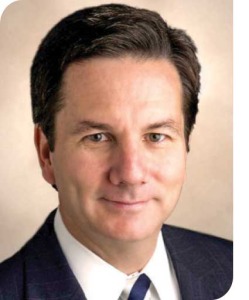 Stephen Owens
Stephen Owens
University of Missouri, Columbia
Inspired by Harper Lee’s “To Kill a Mockingbird”—“I wanted to be like Atticus Finch,” Stephen Owens says—a law career was almost a given. “I felt the intellectual, competitive and teamwork aspects of a legal career would fit well with what I enjoy,” he says. “Fortunately, that has proven to be true.”
For 27 years, that was in private practice in Kansas City. “I loved the Stinson firm—its people, its clients and what the firm stood for—and I anticipated working there for many more years,” he says. But when the opportunity came to return to Columbia as general counsel for the MU system in 2008, he couldn’t say no. “In a way, it was a calling,” he says.
Since then, he’s served as interim president both for the Columbia campus, and for the four-campus system, paving the way for new hires at each. University administration is a field now fraught with financial peril, as state support for students has fallen by half since 2001, adjusted for inflation. “The challenge, he says, “was (and still is) how to manage the increasing demand for, and the increasing cost of, our services in a time of decreasing state resources.”
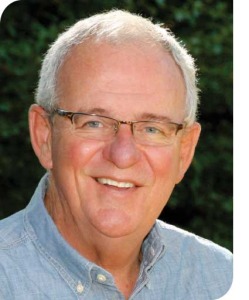 Dan Burkhardt
Dan Burkhardt
Magnificent Missouri, St. Louis
“If you take care of the land, it will take care of you.” That guidance from his parents has been a touchstone throughout Dan Burkhardt’s life. “Everyone on both sides of my family was a farmer. … Everyone we knew made their living from the land,” he says. That sentiment was never far away for one of Missouri’s leading conservationists, even in a career that took him from car repossession to the Public Service Commission to corporate finance with Edward Jones.
In that last role, he met Ted Jones (son of the investment advisory’s founder), and a man who shared his passion for Missouri’s natural wonders. The younger Jones founded the Katy Trail; Burkhardt founded the Katy Trail Land Trust in 2010, to protect land along that trail.
With John McPheeters, Burkhardt also founded Magnificent Missouri, which organizes fund-raisers to benefit environmental groups and causes. “My farm background always made me want to be close to the land and nature,” Burkhardt says. “I have always believed that our natural resources needed more friends and more advocates.”
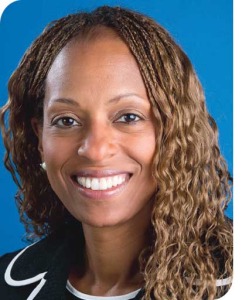 Michelle Wimes
Michelle Wimes
Ogletree Deakins, Kansas City
“I always knew I wanted to be a lawyer,” Michelle Wimes says. “From an early age, I liked the idea of standing up for others and being a voice for folks who were impoverished and disenfranchised.” A Catholic education (St. Joseph Grade School and Bishop Hogan High) infused concepts of “giving back to the community and using your God-given talents to help others,” says Wimes, Director of Professional Development and Inclusion for the Kansas City office of Ogletree Deakins Nash Smoak & Stewart.
She’s done so by helping a family gain political asylum as a third-year law student, working with state prisoners in Louisiana and mentoring poor African-American students. “It wasn’t uncommon for me to log 100-200 hours of pro bono service annually in my first few years of practice,” she says.
Her work at bigger firms led to a realization: “What I really enjoyed most about my practice was mentoring and developing young lawyers.” Diversity in law firms also became a passion, so “I began to explore how I might make a difference in helping others to pursue their passion of practicing law while also helping to diversify the profession.”
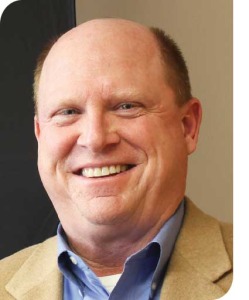 Jim Anderson
Jim Anderson
Missouri Wine & Grape Board, Jefferson City
Jim Anderson was steeped in an agricultural environment, and he’s never strayed far from the vine. He grew up in Troy, Mo., an hour west of St. Louis, where FFA, vocational-agriculture activities, and sports rounded out his school day; at what’s now the University of Central Missouri, he’d majored in agriculture business. Then he set down his own roots in that sector.
“I knew in high school that I wanted to be in agriculture,” says the executive director of the Missouri Wine and Grape Board. Nine years as a horticulture specialist for the Department of Agriculture became a springboard to his current role, where he helps further a deep, rich tradition of grape-growing and wine-making, art forms nearly wiped out by Prohibition.
But the state’s wine industry is back, in a big way, Anderson says, citing the metrics: 129 wineries in Missouri, producing more than 900,000 gallons annually, increasing national and international attention at wine competitions, more than 14,000 full-time jobs supported and an annual economic impact of more than $1.6 billion.
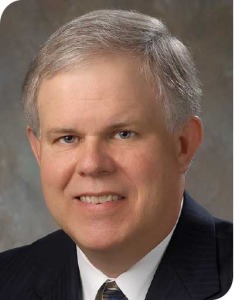 Doug Crews
Doug Crews
Missouri Press Association, Columbia
For the record, Doug Crews does not see any links between early 21st-century newspapers and early 20th-century buggy-whip manufacturers. “With the combined readership of the traditional newspaper and newspaper web sites,” says the executive director of the Missouri Press Association, “more people than ever before are read-ing newspapers!”
That, in part, is owed to the career work of journalists like Crews, a native of Odessa who discovered his veins coursed with ink back in high school. Journalism school at MU led to editing at various weekly papers and ownership of one—The Lawson Review—until 1979, when he joined the MPA staff in Columbia
The practice of newspapering in Missouri predates statehood, so it’s a long tradition he supports at MPA, a clearinghouse for new industry ideas that also promotes the value of newspapers to the public. “In our history as a state and nation, there has never been more demand for information,” says Crews. “This bodes well for the newspaper industry.”
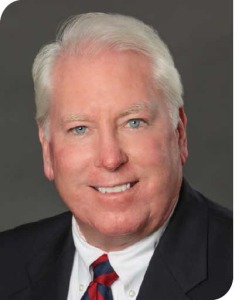 John Sondag
John Sondag
AT&T Missouri, St. Louis
John Sondag knows the ins and outs of telecom, as one would expect from the president of AT&T in Missouri. And some horticulture, too: “I was probably no different than you or anyone else” during his youth in St. Louis, he says. “You always think the grass is greener, right?”
But after earning his degree from Loyola University in New Orleans, “I realized that St. Louis and the Midwest was a pretty nice place to live.” That was reinforced after joining Ma Bell—later broken into AT&T and the Bell telephone network by federal decree—and spending five years in San Antonio.
You’d be hard-pressed to find an executive with more irons in the civic engagement fire: He has logged board service with the Missouri Chamber of Commerce, St. Louis Civic Progress and Kansas City Civic Council, and in St. Louis, with boards for the United Way, Boy Scouts, the zoo—and that’s just scratching the surface. “There’s a purpose to life,” he says, “and I think it’s to give back and make the world a better place. … It’s important to me to give back to those that might have a greater need.”
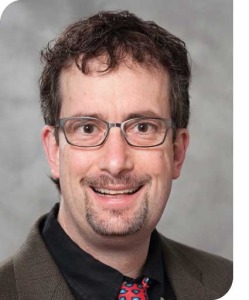 John Spertus
John Spertus
Saint Luke’s, Kansas City
Chicago-born, educated in Boston and San Francisco, John Spertus had big-city doctor written all over him. But he’d promised his wife, Sarah Hoffman, that they would settle where she could start a farm nearby, and academic jobs in cardiology were few at the time. One of them was at UMKC. “Sometimes,” Spertus muses, “it is better to be lucky than good.”
Two decades later, Sarah has her Green Dirt Farm (an artisan sheep dairy/creamery) near Weston, and he’s deep into outcomes-based research in cardiology for Saint Luke’s Mid-America Heart Institute. “In the end, this was the best possible place we could have landed,” says Spertus, who relishes both his growing field and a blossoming selection of restaurants, craft beers and artistic venues locally.
He’s strayed far afield of the genetic research that once sparked his interest in medicine, but gushes about the infrastructure created at Saint Luke’s, and the role he plays in improving patient outcomes. “It is ironic that I was so interested in basic science and genetics and ended up at the opposite end of the research spectrum,” Spertus says.
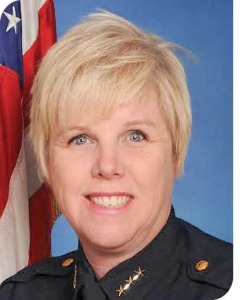 Dianne Bernhard
Dianne Bernhard
COPS, Camdenton
Her father was an Illinois state trooper, as Dianne Bernhard remembers, policing wasn’t exactly what he did in New Windsor. “It was such a small town, so he was somebody who actually solved problems,” says Bernhard, executive director of Concerns of Police Survivors, which offers programs for the families of police killed in the line of duty. His influence was profound, and Bernhard earned a degree in crimi-nal justice and set out to make her own name in law enforcement.
She crossed the Mississippi and joined the force in Columbia. Missouri’s premier college town offered a variety of policing duties, from detective to bike patrol, but it was the patrol sergeant role she found most rewarding, shaping the direction of new recruits.
Last year, she retired and took the position with COPS, extending her reach in law-enforcement issues to new lengths. Membership growth is bittersweet, given the price a family pays to qualify for COPS’ programs, but “after retirement, we all look for something meaningful,” Bernhard says, “and I couldn’t have a more meaningful job than I have now.”
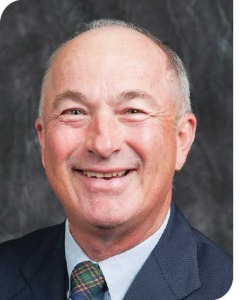 Dave Murphy
Dave Murphy
Mo. Conservation Commission, Canton
David Murphy can readily identify two huge untapped resources that could add new sinew to the state’s economy: “The Missouri River and managed woodlands,” says Murphy, a member of the Missouri Conservation Commission. “The river is a wild, scenic and abundant natural resource …right under our noses. Almost no one appreciates or utilizes this incredible river fully.”
The state’s 14 million acres of timber, only 5 percent of it with written management plans, could yield more wood products, more jobs, better wildlife habitat, and better protection for water resources if properly managed, he says.
A native of Canton, he grew up in a farming mindset “surrounded by self-reliant, independent people who loved to hunt, fish and be outdoors.” That drew him into conservation roles—he was executive director of the Conservation Federation of Missouri before retiring in 2013, and had previously worked for the National Wild Turkey Federation. In those roles, he says, he has seen “ordinary folks accomplish extraordinary things through productive, cooperative action all the time.”
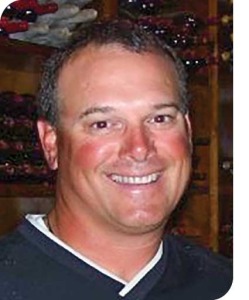 John Sappington
John Sappington
Fishing Guide, Branson
A definite Southern lilt in his accent belies John Sappington’s Kansas City-area roots, but when it comes to fishing in Missouri, he’s 100 percent authentic. After years of searching for his true calling, he entered a fishing tournament in the mid-1990s and placed second. The next time out, he won. “The stars really lined up for me; I caught ’em everywhere I went,” he says.
Time on the water, voracious reading about fishing tactics and analyzing his own success—and failures—honed his skills. From 1998 to 2004, he fished professionally (career winnings: $785,000). Then a boating accident inspired him make his living helping others reel in the big ones as one of the premier guides in the Table Rock/Taneycomo/Bull Shoals area. The business adage of finding what you love to do, mastering it—and never working a day in your life—is Sappington’s personal tale. “It’s just the beauty of the water and the nature around it,” he says, describing his perfect moment on the water. “Running down the lake and looking at trees and their reflection off the water, I know how fortunate I am to be doing what I love to do.”
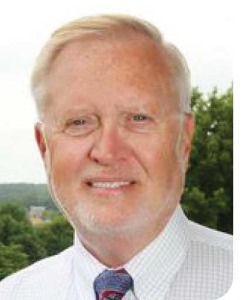 Jerald Andrews
Jerald Andrews
Missouri Sports Hall of Fame, Springfield
In Springfield, the name John Q. Hammons is legendary. When the hotel magnate summoned Jerald Andrews to help revive a struggling pet project, the Missouri Sports Hall of Fame, it was impossible to say no. At that point, nearly 20 years ago, Andrews was executive vice president of his alma mater, Southwest Baptist, in his home town of Bolivar (he earned a master’s at UCM and his Ph.D at Arkansas). But at Hammons’ request, he joined the Hall. “Missouri has an incredible sports history at all levels and in multiple sports,” says Andrews, whose family’s own roots in Missouri run seven generations deep. On his watch, the Hall has expanded its scope beyond pro baseball, basketball and football to encompass collegiate and high school sports—even its first professional bull rider, inducted last year. It is also home to halls of fame for the Missouri High School Football Coaches Association and Special Olympics of Missouri, and it manages the PGA Tour’s Web.com Tour’s Price Cutter Charity Championship, which has generated nearly $12 million to area children’s charities in 24 years.
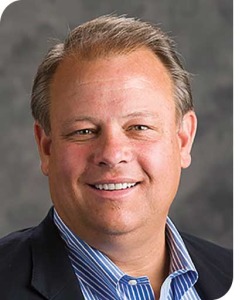 Cris Burnam
Cris Burnam
Storage Mart, Columbia
Armed with a degree in agricultural economics from MU, Cris Burnam headed to California for a commodities-trading job with Cargill. There are worse places for a college graduate to end up, but something was missing. “I couldn’t get comfortable with living away from the Midwest,” says the president of Storage Mart. “After a few years, he felt the tug of coming back to the rolling green hills of Missouri, and here I am.” To the delight, no doubt, of others in the storage business founded by his father.
Four of Gordon Burnam’s children work there; Cris and his brother Mike, the chief executive, have built it into the world’s largest privately owned self-storage company. Cris Burnam’s contribution—he’s overseen $2 billion in transactions and acquisitions—made him an Ernst & Young Entrepreneur of the Year winner in 2014.
Storage Mart has 168 locations in the U.S. and Canada, with more on the way as the company explores other foreign markets. “But for now,” Burnam says, “our biggest opportunities are in Des Moines and Kansas City,” where acquisitions last year brought 35 new sites into the fold.
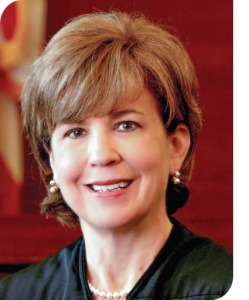 Mary R. Russell
Mary R. Russell
Missouri Supreme Court, Hannibal
A common thread emerged during the education of Mary Rhodes Russell: Back at Hannibal High School, she was valedictorian of her class. At Truman State, she was summa cum laude while majoring in communications and print media. And at MU’s school of law, she made the dean’s list.
While “preordained” might be a bit strong to characterize where a bench career would take her, it’s not by chance that she is a member of the state’s highest court, wrapping up a two-year term this year as chief justice.
That’s a pretty good track record for this seventh-generation Missourian, who grew up a Ralls County dairy farm.
After earning her law degree, she clerked for Supreme Court Justice George Gunn, then went back home to Hannibal for a decade in private practice. Next came 15 years on the Missouri Court of Appeals until former Gov. Bob Holden appointed her to the Supreme Court in 2004. When she had to face voters in 2006, Russell won retention and a 12-year term by a spread of nearly 70-30 percent.
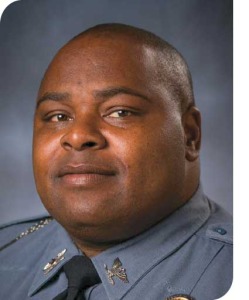 Clarence Green
Clarence Green
Northwest Missouri State Univ., Maryville
Clear career paths rarely reveal themselves to fifth-graders, but Clarence Green decided at that point in life that he’d go into law enforcement—after his home was robbed in East St. Louis.
Flash forward a few decades, and Green is chief of university police at Northwest Missouri State. Two changes he said, have roiled campus policing: Both flow from federal regulations regarding reporting requirements on campus crime.
“We are highly scrutinized for our crime reporting,” said Green, including “the manner in which we release critical information, and our ability to process sexual/relationship violence under Title IX. All of the challenges are woven into how we are perceived by our community.”
Green also works with the U.S. attorney’s office on racial profiling and diversity issues, is a police academy coordinator for the Missouri Sheriff’s Association, and has certification in weapons of mass destruction. Campuses “are known as open environments that promote intellectual debate,” he says. “As law enforcement, it is essential that we have a thorough understanding of all terroristic possibilities.”
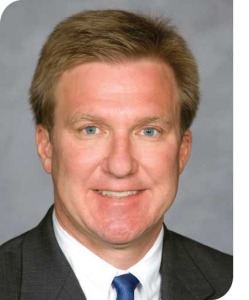 George Wolf
George Wolf
Shook, Hardy & Bacon, Kansas City
Columbia-born and Kansas City-bred, George Wolf got a taste of big-city life as a law school student at Northwestern, but Chicago’s flavor wasn’t right. He’d come home to clerk at Shook, Hardy & Bacon after two years of law school, and found what he calls “opportunity to have a sophisticated, national litigation practice while living in the city where I grew up.” As a bonus, Kansas City was also home to the young lady who would become his wife.
His early career work involved legal fallout from the Hyatt sky walk collapse, which meshed with his MU degree in civil engineering. Today, most of his work is in design and construction.
Wolf also has a deep sense of civic commitment, serving on a long list of boards and commissions, including 7.5 years on the Port Authority of Kansas City board (2.5 as chair), work that he says “has probably been the most rewarding civic activity for me.” A few tangible results of it: the planned reopening of the Port of Kansas City on the Missouri River, a mixed-use riverfront development with 400 apartments and advancing the streetcar project Downtown.
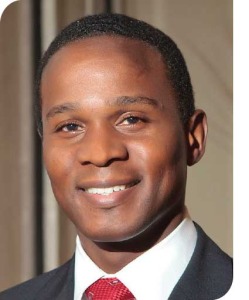 Gabe Gore
Gabe Gore
Dowd Bennett, St. Louis
An inside joke with St. Louis transplants is that natives ask you where you went to school so they can properly stereotype you. So Gabe Gore qualifies as a member of the “in” crowd—his family moved from Detroit in 1983, as he started his freshman year at Parkway South. His father was assigned to run the metal shop at Chrysler’s Fenton plant, turning out a new product called “minivans.”
Gore earned a degree in political science from Missouri State and a law degree at the University of Chicago, and started building a legal career. It has taken him from the Justice Department (including a special appointment with the Waco massacre probe in 1993) to private practice, now with Dowd Bennett, working in commercial law and white-collar crime. The latter, he says, is where he has found his greatest fulfillment.
“Saving someone’s liberty—nothing gives you greater satisfaction than that,” Gore says. “Commercial law is satisfying, but those cases tend to be about money. You can’t equate victory there with a matter that keeps someone who’s innocent out of jail.”
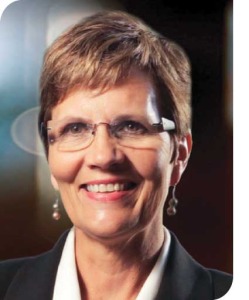 Becky Cleveland
Becky Cleveland
Economic Development Corp., Brookfield
Missouri has 114 counties, plus one independent city, and Interstates 70 and 44 touch precisely 20—leaving 95 others, like Linn County, without direct interstate access. But there is much more to successful rural economic development, says Becky Cleveland, than having an iRoad. In the state’s rural areas, says Brookfield’s economic-development coordinator for the past 13 years, many challenges are shared. But so are the opportunities.
In 2004, the loss of 300 jobs from a plant closing prompted a civic self-appraisal, Cleveland says: “We could not continue to go down the same path.” That led to an asset-based approach to development, focusing on known strengths—a four-lane U.S. 36 is a good one in Brookfield—potential new sectors, and promoting entrepreneurship.
With state support, new rural strategies are emerging, she said, but the most encouraging sign is in the people promoting that growth: “You will find the most passionate economic development people in Missouri in its rural areas, because they are so challenged,” she says. “But the future of our area is important to us. It’s our home.”
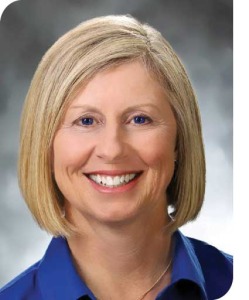 Ellen Port
Ellen Port
Amateur Golfer, St. Louis
Youth sports were a constant in young Ellen Fuson’s life—tennis, basketball, track and swimming and diving. Golf came late to this Gladstone native, and her first set of clubs had been her father’s.
She quickly made good use of them. After her first full 18-hole round—on a course in Hawaii, during her honeymoon with Andy Port—life took a new direction. She’s been at John Burroughs School in St. Louis since 1986 and is golf coach there, but has really made her name swinging a club: She captained the victorious 2014 U.S. Curtis Cup Team, won two PGA Senior Amateur titles, is a record four-time winner of the USGA Mid Amateur Championship, and holds nine Missouri Golf Association amateur titles. She’s been hailed as the state’s greatest amateur golfer ever.
“If I had not had opportunities locally and in Missouri to compete and win, I don’t think I ever would have had success at the national level,” Port says, and she credits a long list of golf mentors. “But the majority of my golf has always been played with Andy—always has and, hopefully, always will be.”
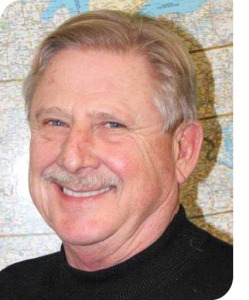 Mike Bowlby
Mike Bowlby
Mack Hils, Moberly
There are, says Mike Bowlby, no challenges to manufacturing in rural Missouri that aren’t also facing companies in big cities.
“The real challenges we all face is a lack of trained employees, mainly because the school systems don’t focus on those technical skills or vocational skills,” he says. “We tell kids if they get a four-year degree, every-thing will be fine, and then they get a history degree and they’re unemployed.”
The South Dakota native has been with Mack Hils Metal Fabrication for 25 years, the past three as co-owner. He’s built it from $100,000 in revenues as a struggling niche fabricator of antique truck beds into a $15 million fabrication and precision-machining company with 106 employees.
Bowlby earned his degree from South Dakota School of Mines, then worked in the energy sector with companies like Gulf Oil and Exxon before work on a project in the Moberly area led to a job offer at Mack Hils.
The upside to rural manufacturing, he says, is that once an employee is trained, he’s likely to have the best job available in a smaller town, and more likely to stay on board.
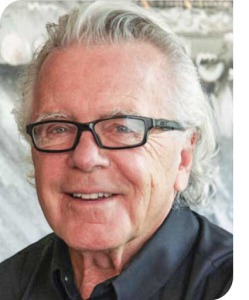 Nick Peckham
Nick Peckham
Peckham Architecture Columbia
In the early 1980s, a doctoral student named Nick Peckham had lunch with the famed architect R. Buckminster Fuller, a University of Pennsylvania faculty member. The student confided that he felt he was wasting his life in school, and Fuller left a tip: “Find a problem no one else has solved, and you won’t have to worry about that any more,” Peckham recalls.
Fuller, who had agreed to be his doctoral adviser, died before Peckham finished that work, but the student long ago became a teacher, and has remained dedicated to the pursuit of elegant and practical design solutions.
Peckham came to Columbia 40 years ago, after spotting an ad for a teaching position at Stephens College. He got that job, later taught at MU, and has had three iterations of architectural firms, the latest dedicated to net-zero building design.
He also hopes to commercialize a patent for Riogen, which uses the natural flow of a river—we have a couple of big ones in Missouri—to generate power, without environmentally intrusive dams.
He also helps his wife, Diane, raise alpacas on their farm outside Columbia.
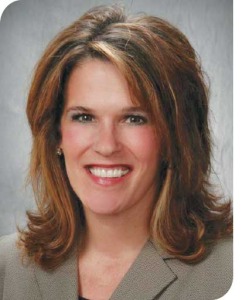 Bonnie Keller
Bonnie Keller
Ronald McDonald House, Springfield
For someone bent on a social-work career, this was a crisis: “Being on the front lines for me was emotionally overwhelming,” says Bonnie Keller. “I could not stop thinking about the struggles people were going through.” But working with Joe Post, the first McDonald’s franchisee in Springfield, she learned that she still had a lot to give. She signed on as a volunteer to help organize planning for the first Ronald McDonald House of the Ozarks, and realized “I can be a couple of steps back, raise money for the organization to provide administration, do marketing and give great guidance for a staff, and I feel that’s where I’m best.”
Two years after becoming a volunteer, she was asked to be the first executive director of the new house, and in 1991, president and CEO. A second home opened in 2012, and nearly 10,000 children and their families have been served—900 just last year. A particular point of pride is the Mobile Dental Clinic, which has served 17,000 youngsters in the Ozarks, most of whom had never seen a dentist.
Of her true calling, Keller says, “it was just one of those things that always felt like destiny from the very beginning.”
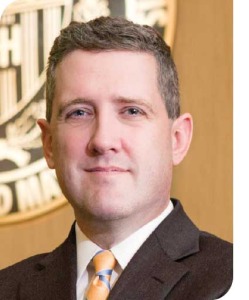 James Bullard
James Bullard
Federal Reserve Bank, St. Louis
Exactly one state in this nation is home to two branches of the Federal Reserve Bank, and Missouri won that distinction—with the 10th district office in Kansas City and the 8th district in St. Louis—when the Fed was created in 1914. The true reasons for that are still argued today, but there’s no debate about the influence that James Bullard, the St. Louis Fed president and CEO, has on both that city and in economic circles nationally.
He grew up in Forest Lake, Minn., and earned degrees in economics, quantitative methods and information systems from St. Cloud State University, then picked up his Ph.D. in economics from Indiana University in 1990 and became a research economist for the St. Louis Fed, rising to president and CEO in 2008.
Bullard is also a blur of activity in and around St. Louis: An honorary professor of economics at Washington University, a member of the Chancellor’s Council at the University of Missouri-St. Louis, and he sits on the boards of the United Way USA, the Greater St. Louis Financial Forum and the St. Louis Regional Chamber, to name but a few.
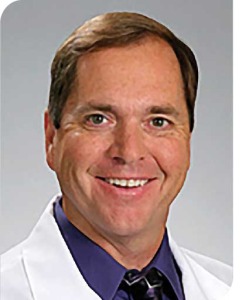 William Kapp
William Kapp
Physician, Cape Girardeau
William Kapp straddles a wide gap in American health care—the one between skilled physicians and efficient business administration. This orthopedic specialist is also an entrepreneur who puts his vision into action. He founded Physicians Alliance Surgery Center in Cape Girardeau in 2000, and served both on the medical staff and as managing partner, then sold it in 2011. Before that, he was managing partner for the only center for orthopedics in that part of the state, and on his watch, revenues for that practice soared 300 percent.
In 2007, he founded Landmark Hospitals, now with seven long-term acutecare facilities in four states, and later launched Technomad, a medical soft-ware company that focuses on touch-screen and voice-activated programs to help doctors manage patient records and treatments.
“Simple, intelligent technology isn’t just what clinicians want—patients want that too,” he wrote in a paper for Technomad partner Nuance.com. “They will increasingly be in search of intuitive technology—like mobile apps and patient portals—that put the power of personal care into their own hands.”
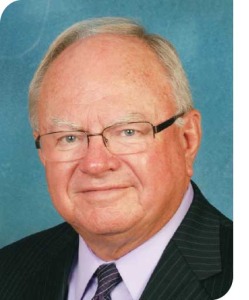 Donald Claycomb
Donald Claycomb
State Technical College of Missouri, Linn
He’s a career educator and a Princeton man, but his value set is pure Missouri: Don Claycomb hails from near Princeton, Mo., pop. 1,138. Growing up in a farming community—he really did attend a one-room country school—he inherited a strong work ethic from his parents, farming knowledge and leadership skills from 4-H and the FFA, and the value of education from his high school teachers.
His journey as an educator began in 1965, eventually leading to administration—in 1993, he became president of what is now the State Technical College of Missouri, formerly Linn State Technical College.
Roughly 60 percent of the college’s existing degree lines have been added on his watch, filling a valuable role in the state’s work-force development needs. He also oversaw the move to take the college from its origins as part of the Osage County R-II school system into the state higher-ed realm. That was one crowning achievement in a career filled with them, but he’s most proud, he says, of knowing that “through all the changes we’ve been involved with, we have stayed true to the technical purpose of this institution.”
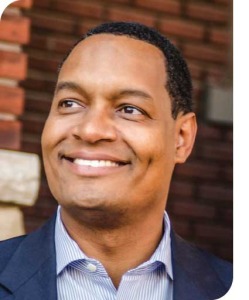 Troy Nash
Troy Nash
Newmark Grubb Zimmer, Kansas City
It was not until 2014 that the Kansas City region saw an African-American break the color barrier as a principal of a large commercial realty firm. That was a proud moment for Troy Nash, a man with many such moments in his life.
“It’s great for me and my family, no question,” said Nash. “But my speaking engagements, the things people are calling me about, are different. And some young guys (all African-American) have come to me wanting to be mentored about commercial real estate.”
Recent achievements include completion on his doctorate in education from St. Louis University, capping a remarkable educational track that has produced an undergraduate degree in economics from Wesley College, master’s degrees in economics and political science from UMKC, a UMKC law-school degree, and an MBA from the Bloch School of Management.
As director of public-sector consulting for Newmark Grubb Zimmer, he draws on public-sector experience on the Kansas City Council from 1999 to 2007, when he joined Zimmer Real Estate, which merged into Newmark Zimmer last year.
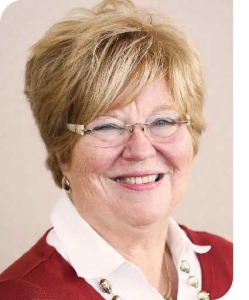 Pat Amick
Pat Amick
Mo. Eco. Dev. Council, Jefferson City
Hundreds of Missouri cities and counties engage economic-development professionals to further the cause of business expansion. Aligning those varied interests through one channel is the Missouri Economic Development Council, a non-profit group where Pat Amick is the executive director. With nearly 30 years of service on the council, she’s at once both the MEDC’s biggest cheerleader—and to many who work in that field, as “Mom” to economic development pros in the state.
If that reflects the depth of feelings they have for her, the feeling is entirely mutual. “I am extremely pleased that I have been able to be with such a great organization for such a large part of my career and be able to offer to them the historical knowledge and resources that come through that relationship,” says Amick, a Jefferson City native.
She has a vast network of people who have served on the MEDC board, and she credits their time, energy and dedication for elevating economic development state-wide. That, she says, has led to successful collaborations among like minds, as well as a unified voice on legislative concerns.
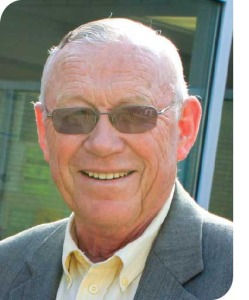 Everett Forkner
Everett Forkner
Forkner Farms, Richards
If Missouri’s multi-billion-dollar livestock industry had a face—a human face—it might look a lot like Everett Forkner’s. A longtime figure in both beef and pork production, he’s a widely recognized expert in techniques to improve the quality of farm-raised hogs, as well as in boar testing, carcass and genetic evaluation, and he’s no stranger to the winners’ circle at various livestock competitions.
An animal-sciences graduate of MU, he’s the patriarch of a small family conglomerate that raises half a dozen swine breeds as well as cattle. He also has a statewide and national reputation, having served as chairman of the National Pork Board (2011-2012), and he’s been a member of the Missouri Pork Association and winner of the MPA’s annual Chairman’s Award.
With four of his children, he has established four family enterprises—a 2,000-acre spread devoted to grain crops and grass farming for feedstocks, a trademarked swine-breed-ing business, a natural premium pork production and marketing business, and a cattle-breeding family partnership.
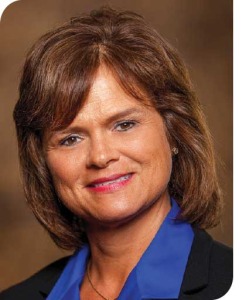 Ranee Brayton
Ranee Brayton
Northeast Medical Center, Kirksville
Ranee Brayton traded northern Missouri for more picturesque settings in Colorado and Wyoming to earn a nursing degree and start her career. When it came time to raise children, familiar settings called her back, along with a good hospital job in Kirksville—in a rural setting, that’s a key.
“I had a lot of extended family in the area, and raising small kids at the time, we felt like it was the perfect opportunity to return to our roots,” says Brayton, who came to Northeast Regional Medical Center in 1996 and became CEO in August 2013.
Her current duties entail both the challenge and opportunity that comes with being a health-care provider in rural Missouri. “Certainly, the geographic isolation in a rural setting has its own set of challenges, in that we have a shrinking demographic, so the patient population we draw from is smaller,” she notes. That dictates service lines offered, and the ability to recruit providers and professionals to staff them.
The upside? Kirksville is home to A.T. Still University, an osteopathic hospital, providing opportunities for shared efforts that can produce a home-grown set of resident physicians.
At the dawn of Dick DeShon’s career, a decision had to be made about where to live. “My wife said ‘I don’t care, as long as it’s in St. Joseph, Missouri,’” her hometown, DeShon says. She was from the family that owned the M.K. Goetz Brewing Co., and DeShon could have worked there, but his father-in-law suggested a more promising line in an emerging field—frozen foods.
That led to Artesian Ice & Cold Storage, where he would work for the next 57 years, dividing his time there with other business interests. But he’s as well-known for his civic life as his business sense, and still sits on various boards, such as the Community Foundation of Northwest Missouri and the Pony Express Museum—he and his wife have raised $3 million to finance restoration and exhibits there. His most significant role, though, is through his work on the Port Authority board.
That led to cleanup of what he calls the “disaster” left by the packing-house exodus, exchanging cattle and hog pens for new businesses in manufacturing, meat-processing and pet-food production, and infusing
new economic vitality into the St. Joseph area.
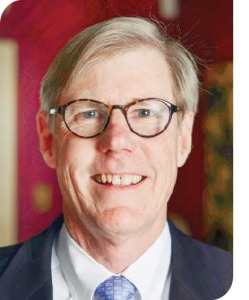 Barney Forsythe
Barney Forsythe
Westminster College, Fulton
Had he been born across the river running past Fort Leavenworth, Barney Forsythe would have been a native of Missouri. As it was, his first days presaged many that would follow before he reached West Point as a cadet—“we moved all over the place,” as part of an Army family, he says. His father and grandfather attended the rank of general, but that wasn’t Forsythe’s goal in military life: “I just wanted to have a successful career and serve as long as I could.”
That he did, with numerous overseas posts and teaching for 24 years at his alma mater before retiring—advancing to the rank of brigadier general—after 35 years of active duty.
At which point he found his new calling as president of Westminster College in Fulton, where he has helped shape a truly international student body. “Having students from all over the world—we’ve had as many as 85 nations represented on campus in a single year—provides a rich mixture of backgrounds, interests, faiths, traditions, and languages,” he says, and all those aspects “begin to educate and prepare our students for leadership in the context of a truly global community.”